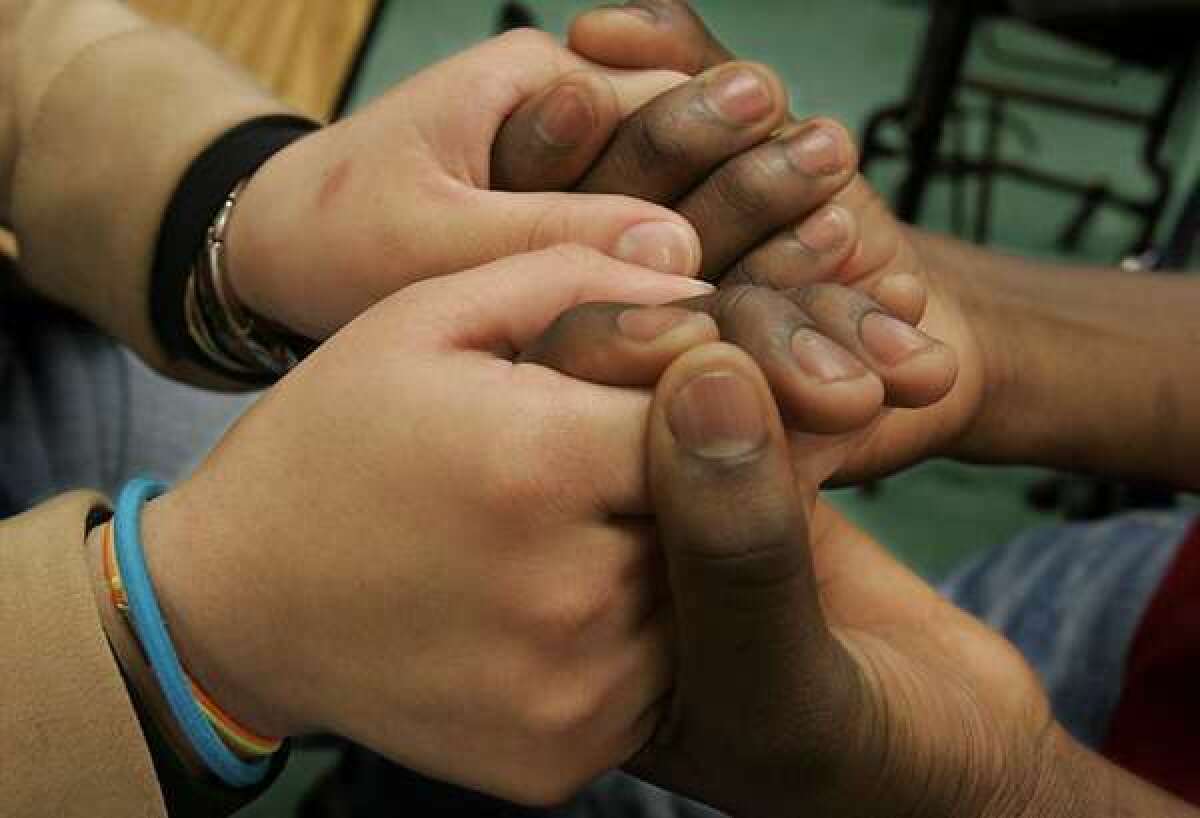In online dating, the race card can be a wild card

- Share via
Love may conquer all, but the process still seems to be cluttered with racial bias.
A new study suggests the world of online dating appears to be just as segregated as the outside world, but those who use the sites appear willing to give interracial and interethnic dating a whirl if someone makes the first move, a new study finds.
The results, published online Monday in the journal Proceedings of the National Academy of Sciences, opens a crack in the façade of prejudice, albeit a small and temporary one: Users revert to their old preferences after a while, according to UC San Diego sociologist Kevin Lewis, author of the study.
Lewis looked at dating overtures and responses from the matchmaking site OKCupid.com and found that while everyone tended to reach out within their own group, they also were willing to expand their future searches if they had received messages across race or ethnicity.
“They are more likely to reciprocate across racial boundaries than to initiate, and if they do reciprocate, their behavior changes over the short-term future,” said Lewis.
Most studies of bias are limited by people’s ability to mask prejudice – who wants to admit ethnic or racial bias? Scientists who instead analyze patterns of social networks often resort to data on long-term affiliations, such as marriage. But marriage and friendships are end results. Lewis wanted to know about process, and he didn’t want to go to crowded singles bars and ask personal questions.
Lewis was attracted to OKCupid.com because its algorithm for matchmaking is published and does not include overt or hidden references to race and ethnicity. “Insofar as racial segregation exists on the site, it is user driven and not imposed by the site,” Lewis said.
The site owner gave Lewis access to interactions from 126,134 users, stripping the data of details that could identify them. He used only data from those who self-identified using the site’s racial and ethnic categories of Asian, black, Indian, Hispanic/Latino and white, and then compared data across sex and two-digit ZIP Codes, factoring out the effect of the site’s overall composition.
Not surprisingly, “everyone is searching in their own group, and actually it’s more pronounced for minorities,” Lewis said. Indians and other Asians were the most exclusive about whom they messaged, followed by Latinos and blacks, with whites being the most likely to cross group lines – though still generally focusing on their own.
So, if users are self-segregating, why would they be inclined to respond to someone reaching across boundaries and then start making similar overtures? Users may be engaging in “preemptive discrimination,” Lewis suggested. They may avoid reaching out across racial or ethnic boundaries because of past experience with prejudice and rejection. But when that expectation is broken, its effect can be strong enough to change core behaviors.
That strength may not be resilient, the data suggested. “That one experience quickly fades and is overwhelmed by the status quo,” Lewis said. And the status quo, regardless of race, is that most online overtures go unanswered, which users interpret as “not interested,” he said.
Lewis viewed the results somewhat optimistically – they at least show that the walls we erect among ourselves are permeable. And they suggest that one person’s response can change someone else’s prejudiced behavior.
And maybe that’s just enough for cupid’s arrow to find its mark.







